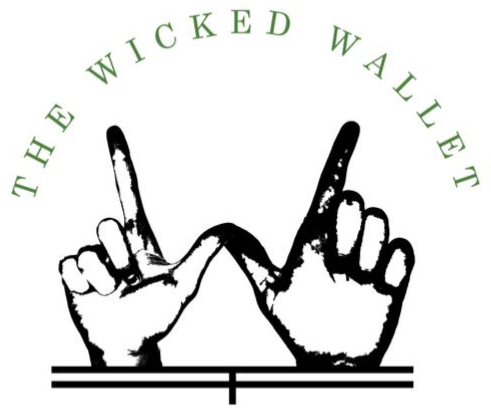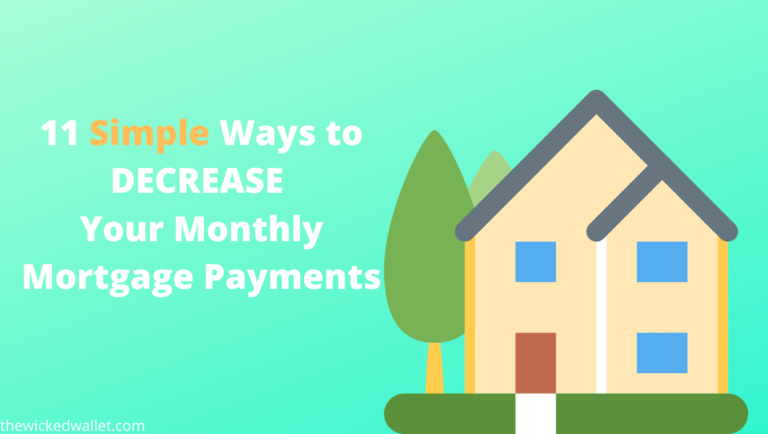Budgeting is great. It’s the first step in the right direction when it comes to getting your financial health in order. However, there are only so many things you can completely cut out of your budget. When that time comes, it is really important to look at your biggest expense categories and see how you can minimize those expenses.
For most people, the biggest expenses in their budget include housing, transportation and food. Jake and I have been able to completely zero out one of those categories, can you guess which?
Housing! We’ve already talked about house hacking on the blog before, but in case you missed it… House hacking is a strategy used to either completely eliminate or greatly reduce your housing expense. It can be done in a number of ways but the most prominent is by buying a property and renting out rooms/units to tenants in order to pay for your mortgage expense.
But what if you’re already house hacking? Can you minimize this expense even more?
Well, of course it depends on a lot of factors but there are always ways to try to reduce your mortgage. In fact, we just reduced ours! The best thing about reducing it is that we already were living for free, so the extra monthly amount now just goes towards future real estate investments.
If you already have a house, whether you are house hacking or not, check out the strategies below outlining how you can decrease your monthly mortgage expense!
11 Ways To Decrease Your Mortgage Expense
#1. Refinance:
Refinancing your mortgage can help you get a lower interest rate. Talk to your current lender as well as other lenders to see who has the lowest interest rates and discuss your options with them. This can greatly decrease your monthly mortgage cost.
You can also refinance to lengthen or shorten the term of your mortgage. Lengthening will decrease the monthly payment owed while shortening will do the opposite. Lenders will also let you consolidate debt into one monthly payment, which might be something to consider if you have higher interest rates on other loans.
With refinancing, you still have to pay closing costs but speak with your lender about this because they can often greatly diminish how much you owe in closing costs.
#2. Switch Insurance:
Shopping around for different insurance rates is another surefire way to decrease your mortgage expense. Look for bundle deals where an insurance company will let you group your mortgage and car insurance together, this can usually get you the lowest rates.
Another option is to talk to your current mortgage holder and let them know that you have been looking elsewhere and have seen much lower rates, tell them that you have really enjoyed their service so far but the monthly payment is just too high. You never know – they might be able to lower your payment.
#3. Get Rid Of PMI:
PMI is an evil that we must face for using an FHA loan. PMI (private mortgage insurance) is required for lower down payment loan programs to help insure the lender’s investment. If you put down 20% for your property, you probably don’t have PMI (if you do, definitely check with your lender because you shouldn’t).
PMI is automatically taken off our mortgage when you have paid down 22% of the loan (so there is 78% of your loan left). But technically you can ask your lender to get rid of PMI once you pay down 20% so definitely be proactive in asking.
Another way to get rid of PMI is to get a new appraisal on the property. Appraisals can cost anywhere from $300-600 but most lenders will consider a new appraisal value instead of the original sales price when deciding whether you meet the 20% equity threshold.
We have even heard of people adding on another bedroom onto their home or a pool to increase the market value, then asking the lender to recalculate the loan-to-value ratio using what the property would now be worth.
In some cases, you are able to pay the entire mortgage insurance premium at closing as well. It might be a couple hundred to a couple thousand dollars paid upfront but it reduces your monthly payment greatly.
#4. Have The Tax Assessment Redone:
Property taxes are controlled by your local government and the final amount due is considered ad valorem, which means it’s based on the value of your property.
In some cases, the tax assessor may come to your property but more often than not they are assessing the value of your property remotely.
What you can do is go to your town hall, find the local tax assessor and ask for your property tax card. This has all the information on how your property has been taxed over time. Since the process is done remotely, there are normally some mistakes between what has been done to the house. This is where you can note any discrepancies and have the tax assessor update your tax bill.
Another way to approach lowering you taxes is to go to the town hall and look at the public tax records of homes similar to yours. This can really help lower your taxes because you can make the claim that you shouldn’t be paying more than a house in a nearby area similar to yours.
Always look to see if your municipality offers exemptions for a category you could fall into. Some common examples include: seniors, veterans and agriculture properties.
Last but not lease, you can always file an appeal to your tax bill. This will cost you a small bit of money, but it could save you huge in the long-term!
#5. Interest-Only Mortgage:
These would work best for someone who is in the early years of their mortgage. Especially for first time home buyers. This can drastically reduce your monthly mortgage payment for a couple years (usually around 5-6 years of a 30 year mortgage).
This type of mortgage allows you to pay only the interest first, so no principal is being payed down during the first couple of years. The benefit of this is the super low monthly mortgage cost. First time home buyers would consider this option if a lot of high cost repairs (roof, water heaters, etc.) came up right after purchasing the home and they want to make sure they can still maintain their monthly payments.
After the interest is paid off, you are solely paying down the principal. While paying off the interest, you have the option of putting more money towards the principal, but you do not have to.
This would be a good option for someone who doesn’t think they will be able to cover their monthly mortgage expense for much longer as it drastically reduces the expense.
#6. FHA Streamline:
If you already have an FHA loan against your property, you could try an FHA streamline. This is a version of refinancing specifically for FHA loan holders. It allows you to lower your mortgage rate and do so quickly.
Refinancing this way allows you to avoid the hassle of paperwork and appraisals. There is no income verification check and no full credit check either. This is because you already have the FHA loan, so you’ve already proven all of this to the lender.
The only stipulation is that you had to have paid every mortgage payment on-time in the last 12 months. The new streamlined loan cannot exceed the original loan amount you borrowed. You still have to pay closing costs however your lender will work with you to minimize them.
The benefit of refinancing this way is lowering your interest rate without all the hassle. This can seriously help lower your monthly mortgage payments.
#7. VA Interest Rate Reduction Refinance Loan (IRRRL):
Also known as a VA streamline is another quick way to refinance that doesn’t have many requirements, similar to the FHA streamline mentioned above.
This allows qualified veterans to refinance and get a much lower interest rate on their loan. You still have to pay closing costs, but more often than not, your lender will work with you to completely minimize them.
#8. USDA Loan:
This was created by the United States Department of Agriculture in order to help people in more rural areas purchase homes.
There are eligibility requirements for this, including earning a low to moderate income and being in a rural area, but if you meet them then this is a great option. There is no appraisal needed and no income verification or credit review.
Again, the same stipulations apply here as the streamline and IRRRL: the lender needs to make sure you paid on time in the last 12 months and you may have to pay some small closing costs.
#9. Try To Recast:
With this strategy, you are having the lender “recast” your mortgage. This means that you are taking out a new mortgage for a lower amount. This usually requires you to pay $5k-10k upfront.
Once you pay the lump sum, you recast your mortgage, so your loan is then re-amortized and your new monthly payment is calculated.
This option is not available to government loans including FHA, VA and USDA loans.
#10. Rent A Room:
If you have a spare bedroom or even a finished basement, have you considered renting it out? More often than not, someone will be willing to rent it from you. This can seriously help you cover your mortgage expense!
A lot of people will even pay to park some of their cars, snow mobiles, trailers, etc. in your yard if you’re willing to let them.
#11: Rent A Bay/Attic/Basement:
Jake and I rent out an extra garage bay that we have no use for. It’s a win-win. We get paid for something we never use and someone gets to store their car and not worry about the elements.
We even have friends who let people store items in their basement/attic and charge them a small fee every month. The only recommendation we have for this is to separate it using some sort of caging with a lock, so no one can claim anything was stolen.
Final Thoughts
Regardless of which strategy you use, there are plenty of ways to try to reduce your mortgage expense. You could even do a combination of the strategies listed above. It is also worth noting that if you are facing any hardships the government offers specific programs to help you in those times of need.
Have you refinanced your mortgage? How did you do it?
For more wicked reads, check out these articles!
- One Way To Actually Save More For Retirement
- House Hacking 1 Year Anniversary
- Thrift Savings Plan: Everything You Need To Know



